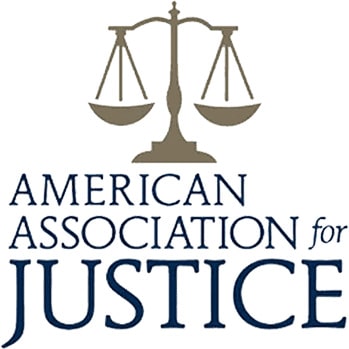Wondering if you’ve been sexually abused? The ‘Was I Sexually Abused’ quiz can help you understand your experiences. This article will guide you in recognizing the signs of abuse, understanding consent, and finding support if needed.
Key Takeaways
- Consent is essential for any sexual activity, must be informed, and enthusiastic, and can be revoked at any time, while silence or lack of resistance does not equate to consent.
- Sexual abuse encompasses not only physical violations like unwanted touching and rape but also psychological manipulation and coercion, necessitating a clear understanding of consent.
- The ‘Was I Sexually Abused’ quiz is a valuable resource for individuals to evaluate their experiences and recognize signs of abuse, guiding them towards appropriate support.
Understanding Consent: Take the “Was I Sexually Abused Quiz”
Consent is fundamental to any sexual activity. It must be informed, enthusiastic, and free from any pressure or coercion. Silence or a lack of resistance does not imply consent. It should be clearly communicated and withdrawn at any moment if discomfort arises. Recognizing consent is vital for nurturing healthier relationships and preventing sexual abuse.
Sexual abuse can take many forms beyond physical force, such as psychological manipulation and coercion. It spans from unwanted touching to severe offenses like rape, and many individuals have been sexually assaulted. Many assaults happen between acquaintances, highlighting the importance of clear and explicit consent in every interaction. Consent must be given for each specific act; assumptions based on prior consent can lead to violations.
The “Was I Sexually Abused Quiz” helps individuals reflect on their experiences and assess whether they may have been victims of sexual abuse. Educating oneself about consent aids in recognizing signs of abuse and taking protective measures. This quiz serves as an interactive tool to evaluate personal experiences and guide individuals towards appropriate next steps based on their outcomes.
Introduction
Understanding consent is key to recognizing and preventing sexual abuse. Consent is more than a verbal “yes”; it requires a clear and enthusiastic agreement to engage in sexual activity. It must be given freely, without manipulation or coercion, and can be withdrawn at any moment if discomfort arises.
Sexual abuse manifests in various forms, including unwanted touching, coercion, and severe offenses like rape. These acts can leave lasting emotional and psychological impacts on victims. Sexual abuse is not limited to physical contact; it includes any behavior that violates a person’s boundaries and autonomy.
Many victims of sexual abuse and other victims struggle to discuss their experiences due to feelings of shame, guilt, or fear of not being believed. This blog post aims to offer a safe space for individuals to reflect on their experiences, understand the importance of consent, and recognize the signs of abuse.
Taking the “Was I Sexually Abused Quiz” can initiate a journey of self-awareness and healing. This quiz helps evaluate past experiences to determine if they constitute sexual abuse, guiding you toward the necessary support.
Recognizing Sexual Abuse
Recognizing sexual abuse is the first step toward seeking help and healing. Sexual abuse includes a wide range of actions, from unwanted touching to explicit consent violations and other non-consensual activities. Understanding these different forms empowers individuals to identify and address violations.
Awareness of the signs of sexual abuse is essential for both prevention and supporting sexual assault victims.
Unwanted Touching
 Unwanted touching is a common form of sexual abuse that includes behaviors like kissing and fondling, regardless of whether clothing is involved. Any intentional physical contact of a sexual nature without consent qualifies as sexual assault. This abuse can make victims feel uncomfortable, violated, and powerless, leading to lasting emotional trauma. Recognizing that unwanted touching, regardless of context or intensity, is a form of sexual abuse that should not be ignored.
Unwanted touching is a common form of sexual abuse that includes behaviors like kissing and fondling, regardless of whether clothing is involved. Any intentional physical contact of a sexual nature without consent qualifies as sexual assault. This abuse can make victims feel uncomfortable, violated, and powerless, leading to lasting emotional trauma. Recognizing that unwanted touching, regardless of context or intensity, is a form of sexual abuse that should not be ignored.
Explicit Consent Violations
Explicit consent violations occur when there is a clear absence of consent for each specific sexual act.
Consent must be informed and actively given; it cannot be inferred from a lack of response or assumed from previous interactions. Each sexual act requires fresh, enthusiastic consent, and any ambiguity can lead to violations. Not physically resisting or remaining silent does not imply consent.
Recognizing these violations is crucial in preventing sexual abuse and supporting victims.
Other Forms of Non-Consensual Activity
Sexual abuse can also manifest in non-physical forms, such as psychological manipulation and coercion. Verbal harassment, emotional manipulation, and other non-consensual activities violate personal boundaries and can be as damaging as physical abuse, including sexual violence.
Consent can be withdrawn at any time if someone feels uncomfortable, and respecting personal boundaries is crucial to prevent abuse. Understanding these forms of abuse helps in recognizing violations and seeking appropriate support.
Questions to Determine if You Were Sexually Abused
Reflecting on specific questions can help determine whether you have experienced sexual abuse. Sexual assault is defined as any sexual contact that occurs without consent. Consent must be given for each specific act, and agreeing to one act does not imply consent for future acts. Recognizing instances where your consent was violated is crucial and seeking help is important.
The “Was I Sexually Abused Quiz” serves as an interactive tool to evaluate your experiences and guide you towards the appropriate next steps.
Age and Legal Capacity
Age and legal capacity are crucial in determining consent. The legal definition of consent requires that an individual agrees by choice, having both the freedom and capacity to make that choice. Individuals under a certain age cannot legally consent, and those with diminished capacity, such as mental disorders, are also protected under laws governing consent.
These factors are vital in assessing whether consent was valid in your situation.
Physical Force and Coercion
Physical force and coercion are significant indicators of non-consensual activity. Non-consensual activities can include emotional manipulation, coercion, or threats, which do not always involve physical force. Non-physical forms of coercion, such as psychological or verbal threats, can also violate consent.
If you felt pressured or coerced into giving consent, recognizing that this affects its validity is important.
Substance Use and Memory Loss
Substance use, especially alcohol and drugs, can impair an individual’s ability to give informed consent. When intoxicated, individuals may not fully remember events or decisions made during that time. Asking yourself, “Were you intoxicated at the time of the act?” helps assess your level of consent.
Understanding how substance use affects consent helps recognize and address potential abuse scenarios.
Contact us today for your free & confidential case review. Our team will help you get the compensation that you deserve.
Understanding Your Feelings and Reactions
Reflecting on your feelings and reactions can clarify whether you have experienced sexual abuse. Abuse-related trauma can lead to distressing emotions, affecting one’s sense of safety and self-worth. Victims may experience a range of emotional responses, including guilt, self-blame, confusion, anxiety, and fear.
Recognizing these feelings is the first step towards seeking support and beginning the healing process.
Feeling Uncomfortable or Unsafe
Feelings of discomfort and fear can signal potential abuse. These emotions often stem from experiences that create a sense of helplessness and violation. Experiencing discomfort or fear in certain situations can indicate that your boundaries have been crossed, highlighting the need for further reflection and support.
Recognizing these feelings is crucial in identifying and addressing abuse.
Lack of Physical Resistance
Many believe that one must physically resist an unwanted sexual advance to indicate that consent was not given. However, consent can exist in various forms, and not resisting physically does not imply that consent was granted. Coercion can manipulate individuals, making them feel unable to resist, and thus non-resistance is not an indicator of consent.
Understanding this is vital in recognizing abuse.
Confusion About Relationships
Abuse can occur within relationships, often leading to confusion about what constitutes consent. The closeness of a relationship can create ambiguity about boundaries, making it difficult to discern consent. Signs of abuse within a relationship may include extreme jealousy, manipulation, or pressure to engage in sexual acts.
Recognizing and acknowledging these dynamics is crucial for understanding consent and preventing abuse.
Seeking Help and Support
Seeking help and support is essential for recovery after experiencing sexual abuse. Immediate medical attention is crucial to address physical injuries and provide necessary care. Professional counseling services offer the tools and support needed to cope with trauma and begin the healing process.
Having a reliable support network of trusted family members, friends, or support groups is vital for emotional recovery.
Medical Attention
Immediate medical attention after an assault is crucial for both physical health and the collection of evidence. Seeking medical care promptly addresses physical injuries and prevents sexually transmitted infections.
Medical professionals can also help collect evidence necessary for any legal proceedings.
Counseling Services
Professional counseling is vital for helping survivors cope with trauma and begin healing. Counseling provides a safe space to process feelings and develop coping strategies. It offers essential tools and support for individuals processing sexual trauma, helping them regain a sense of control and well-being.
Support Networks
A reliable support network, including family and friends, significantly aids in the recovery process for survivors of sexual abuse. Emotional support from loved ones provides strength and reassurance during the healing journey.
Engaging with friends and family, or joining dedicated support groups, fosters a supportive environment and raises awareness about sexual abuse. Encouraging others to take the quiz and discussing its outcomes promotes understanding and support within your community.
Taking the “Was I Sexually Abused Quiz”
The “Was I Sexually Abused Quiz” serves as an interactive tool to help individuals assess their experiences related to sexual abuse. Taking the sexually assaulted quiz allows you to reflect on your experiences, understand your feelings, and determine whether you may have been a victim of sexual abuse.
The quiz can guide you in recognizing potential signs of abuse and deciding on subsequent steps. Sharing your quiz experience with others promotes awareness and fosters a supportive environment.
How to Take the Quiz
 To access the “Was I Sexually Abused Quiz,” visit the designated website where the quiz is hosted. Ensure you are in a private and safe environment before starting. Read each question carefully and answer honestly for the most accurate results.
To access the “Was I Sexually Abused Quiz,” visit the designated website where the quiz is hosted. Ensure you are in a private and safe environment before starting. Read each question carefully and answer honestly for the most accurate results.
After completing the quiz, review your answers and the feedback provided to gain insights into your experiences.
Interpreting Your Results
Interpreting your quiz results involves reflecting on how they resonate with your experiences and feelings. If your results suggest potential abuse, it is important to validate your feelings and understand that they are legitimate.
Consider seeking professional support or counseling if your results indicate experiences of sexual abuse, as this can help you navigate your feelings and experiences more effectively.
Sharing Your Experience
Sharing your experiences can be a powerful way to promote awareness about consent and sexual abuse. You can share your quiz results with friends, support groups, or on social media to raise awareness and foster understanding. By discussing your experiences, you can help others in similar situations and contribute to a supportive community that understands the importance of consent.
Frequently Asked Questions
What is consent, and why is it important?
What should I do if I don’t remember giving consent due to intoxication?
How can I tell if what happened to me was sexual abuse?
What are the benefits of seeking professional counseling after experiencing sexual abuse?
How can I support a friend who has experienced sexual abuse?
Last updated Wednesday, September 18th, 2024











